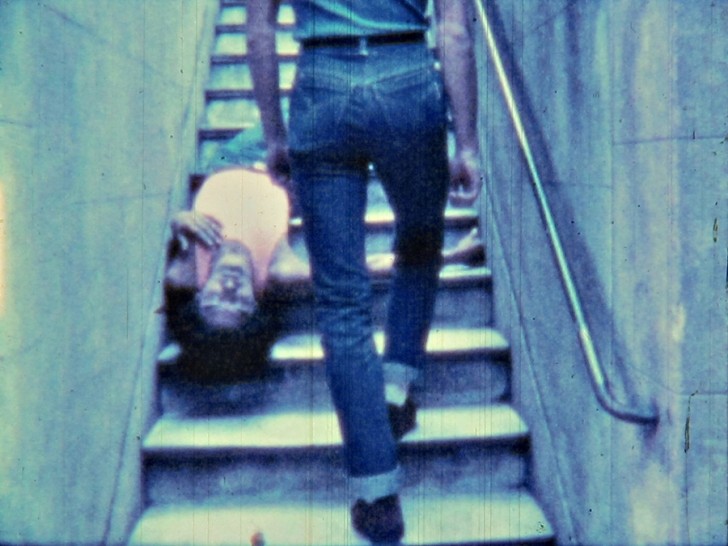
Magnifications: Narcisa Hirsch + Marie Louise Alemann
A pivotal figure in Latin American experimental cinema, Narcisa Hirsch (b. 1928) took up artistic practice by first focusing on painting and sculptural objects, then shifting toward public performances and, by the late 1960s, moving into filmmaking. Born in 1928 in Germany and residing in Argentina since her early childhood, Hirsch exemplifies a type of cosmopolitan, émigré artist whose freedom of mobility shaped the subjects and themes of her work. Reflecting, in part, the influence of the art and cinema of the sixties on her practice, Hirsch's films showcase sensorial and corporeal experience across different local and international sites, and at times acknowledge directly her particular gendered perspective. The films also combine the filmmaker's own treatment of existential and spiritual questions with lyrical imagery, much of it shot in the interior spaces of Hirsch's domestic life, the rural landscapes of Patagonia and the urban environments of Buenos Aires.
Born and raised in Germany, Marie Louise Alemann (1927-2015) left Europe in the late 1940s for Argentina. She began her filmmaking practice in the late 1960s, after studying photography in New York and during an intensive period of collaborative performance undertaken with Hirsch and their friend Walther Mejia. Because Alemann was often an onscreen performer, she relied at times on Hirsch, Claudio Caldini and other filmmakers to operate her Super 8 camera. Yet all of her films display a consistent set of visual and thematic concerns. One key feature that distinguishes her cinema is her unique exploration of the filmed performer as a physical presence. Alemann typically presented herself and others in staged and improvised scenarios, populating urban and rural spaces with odd, menacing, or humorous costumes and props (often masking the face), and framing them within visual compositions that ranged from the baroque to the minimalistic. Her longstanding exploration of the camera's ability to capture and transform the body and the face was motivated by the questions she was posing about cinema and subjective identity. Her work often asks which aspects of personhood can be hidden and revealed through the visual representation of masks, faces and moving bodies.
Beginning in 1974, both Hirsch and Alemann were instrumental in promoting experimental cinema at the Goethe Institute in dictatorship-era Buenos Aires. Initially under the direction of Ute Kirchelle, the Goethe Institute screened recent work by experimental filmmakers from various countries, gave away Super 8 film, organized film competitions with awards and offered workshops by filmmakers for those interested in making experimental films. Most active as a series of screenings and discussions held between 1974 and 1979, this activity continued throughout the country’s most repressive dictatorship. – Federico Windhausen
PROGRAM
-
Marabunta
Directed by Narcisa Hirsch.
Argentina, 1967, DCP, black & white, 8 min.
DCP source: Filmmaker
-
Table Scenes (Escenas de mesa)
Directed by Marie Louise Alemann.
Argentina, 1979, DCP, color, 7 min.
DCP source: Federico Windhausen
-
Diarios Patagónicos
Directed by Narcisa Hirsch.
Argentina, 1972, DCP, color, silent, 11 min.
DCP source: FilmmakerAutobiográfico 2
Directed by Marie Louise Alemann.
Argentina, 1974, DCP, color, silent, 5 min.
DCP source: Federico Windhausen
Taller
Directed by Narcisa Hirsch.
Argentina, 1974, DCP, color, 11 min.
English version.
DCP source: Filmmaker
Come Out
Directed by Narcisa Hirsch.
Argentina, 1974, DCP, color, 11 min.
No dialogue.
DCP source: Filmmaker
Self Defense (Legítima defensa)
Directed by Marie Louise Alemann.
Argentina, 1980, DCP, color, 8 min.
DCP source: Federico Windhausen
Thresholds
Directed by Marie Louise Alemann.
Argentina, 1980, DCP, color, 19 min.
DCP source: Federico Windhausen
















